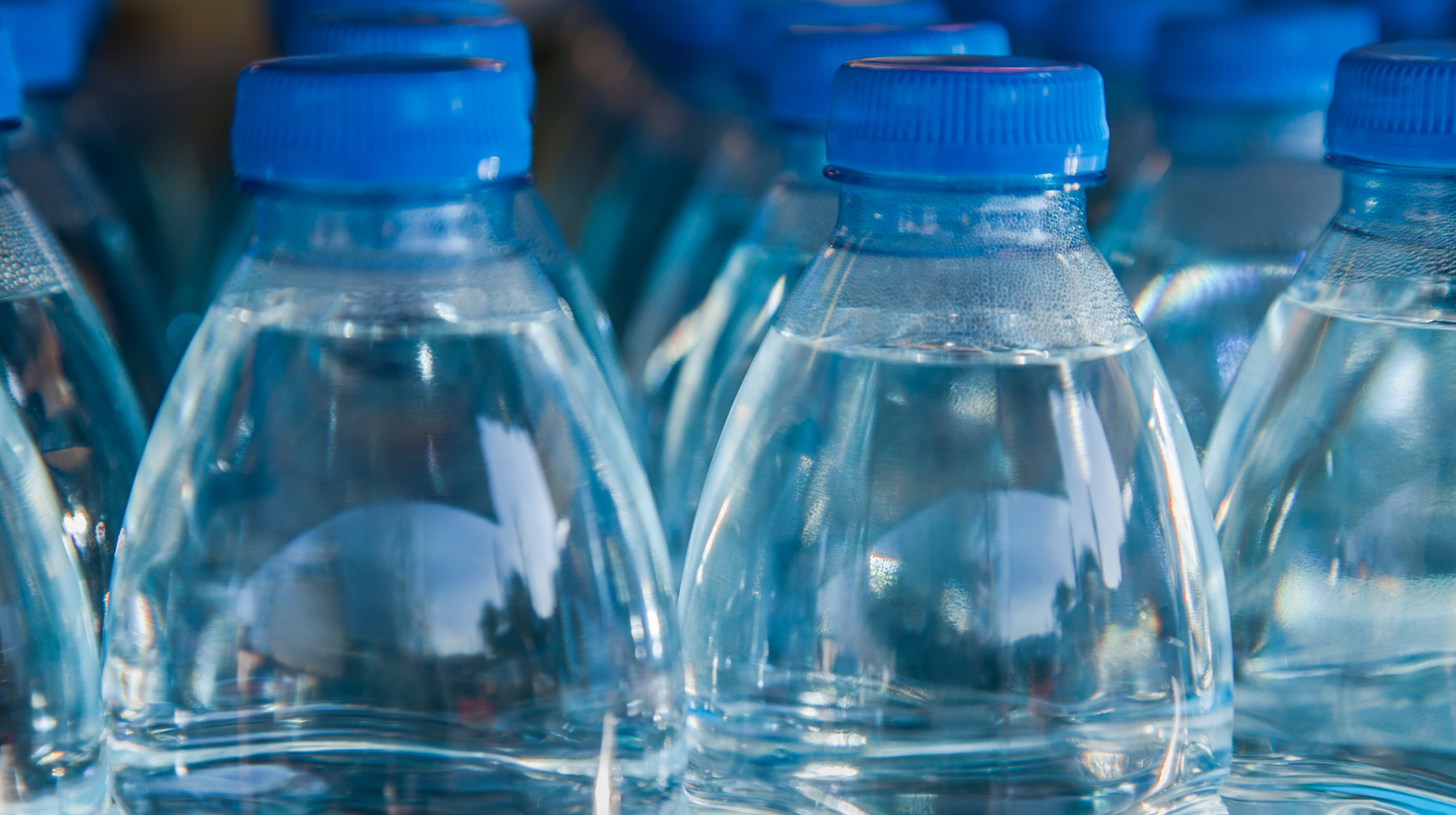Does Bottled Water Go Bad?
Maybe I'm still scarred from watching Bird Box, but lately I've been pondering the shelf lives of non-perishable food stuffs. (Did you know canned foods are safe pretty much forever?) Content with the knowledge that I'll be able to live off cans of garbanzo beans and minestrone soup even after the Zombie Apocalypse, my attention turned to hydration. If I theoretically had a basement full of bottled water, would the water inside those bottles ever go bad?
The U.S. Food And Drug Administration does not require expiration dates on bottled water, because it is considered to have an "indefinite shelf life." Water is sealed under specific sanitary conditions put forth and inspected by the FDA, and because it contains no protein or sugars or any other matter that could spoil, sealed bottles can be stored forever. If manufacturers do put a date on their water, it's entirely optional and would be a mark of best-quality-by, not of safety. According to a spokesperson for the International Bottled Water Association (IBWA), only one state, New Jersey, once required dates on bottled water, but the state legislature repealed that law in 2006.
"Many companies place date-based lot codes on bottled water containers to assist in managing stock rotation at distribution and retails points," the IBWA spokesperson tells The Takeout. Basically, they want to keep the most up-to-date packaging out in the market, so any codes on the bottles are mainly to help stores know when to rotate through product and restock.
But if you open that bottle, the clock starts ticking.
"Once someone opens and drinks from a bottled water, that water is subject to germs and spoilage because food particles could have entered the water via backwash, just as could happen with any other beverage packaged in a single-serve container," the IBWA spokesperson tells us.
Now that you've potentially introduced contaminants into the water, it's no longer safe forever. You won't immediately get sick from your backwash germs, but over an extended time, bits of food from your mouth could begin to turn gnarly inside that bottle or on its rim. The IBWA recommends finishing that bottle of water in one sitting, just to be sure, or refrigerating it between sips to slow down bacterial growth. Greer Bautz, communications director for reusable water bottle company Nalgene, says that Nalgene recommends letting water bottles dry with the cap off after cleaning so that moisture evaporates completely. Caps come into contact with the part of the bottle your mouth touches, so they need to be cleaned and dried thoroughly between uses. In summation: Any part of a bottle that touches your mouth can potentially get gross over time, so don't drink out of old plastic water bottles or cruddy reusable bottles.
When it comes to a glass of water, the same rules mostly apply. An uncovered glass of water gets stale after a few hours because the surface of the water interacts with air, slightly changing the water's pH and chlorine content. It's probably not unsafe, in most cases, but leaving it open to the air means particles, skin cells, tiny bugs, etc. can get mixed in. No one wants to waste water, but it's probably best to use the glass you left out overnight to water your houseplants. Then pour yourself a cold, fresh one.
